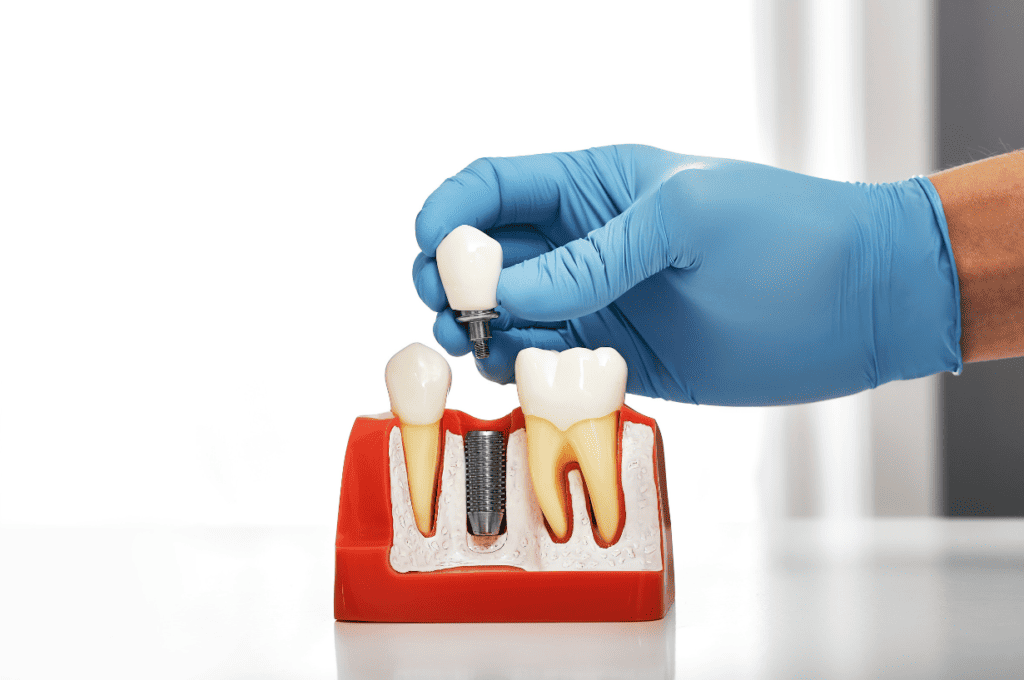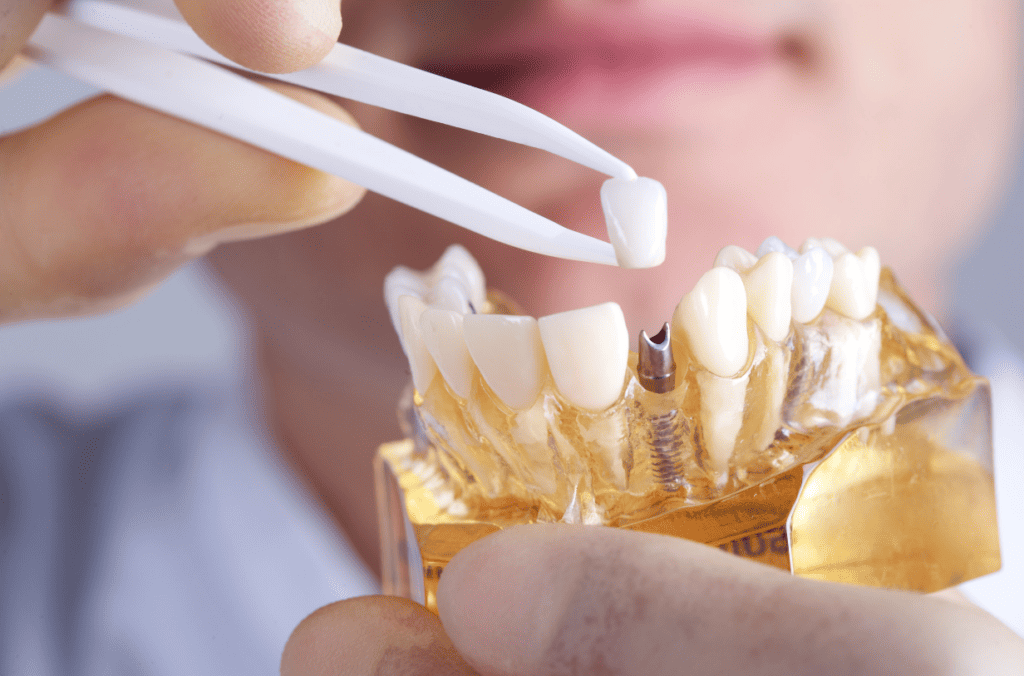When it comes to replacing missing teeth, patients have several options to consider, each with its own set of benefits and drawbacks. Understanding the differences between these solutions can help individuals make informed decisions about their oral health.
This section explores how dental implants compare to other common tooth replacement methods such as bridges and dentures.

Comparing Dental Implants: An Overview
Dental implants are surgical components that interface with the bone of the jaw or skull to support a dental prosthesis such as a crown, bridge, or denture. They are anchored securely in the jawbone, providing a stable and permanent solution for missing teeth. Implants are known for their durability, natural appearance, and the way they mimic the function of natural teeth.
Traditional Bridges
Bridges are dental restorations that “bridge” the gap created by one or more missing teeth. A bridge is made up of two or more crowns for the teeth on either side of the gap and a false tooth/teeth in between. Unlike implants, bridges rely on surrounding natural teeth for support. This means that adjacent teeth must be filed down to anchor the bridge, potentially leading to tooth damage and loss of healthy tooth structure.
Benefits of Bridges:
- Non-surgical option
- Shorter treatment timeline
- Lower initial cost compared to implants
Drawbacks of Bridges:
- Require alteration of adjacent healthy teeth
- Do not prevent bone loss in the jaw
- Typically need to be replaced every 5 to 15 years
Removable Dentures
Dentures are another traditional method for replacing missing teeth. They can be full or partial, depending on the number of teeth missing. Dentures are removable and rest on the gums.
Benefits of Dentures:
- Non-surgical solution
- Can replace multiple or all missing teeth
- Less expensive upfront than implants
Drawbacks of Dentures:
- Can be uncomfortable or ill-fitting
- May slip or cause difficulty with speaking and eating
- Do not stimulate bone growth, which can lead to jawbone deterioration
Dental Implants vs. Bridges and Dentures
Dental implants offer several distinct advantages over bridges and dentures. Implants preserve natural tooth structure by eliminating the need to alter adjacent teeth, as required for bridges.
They also maintain bone health by stimulating bone growth, preventing the jawbone deterioration commonly seen with dentures. Additionally, implants provide superior stability and comfort, allowing for normal eating, speaking, and oral hygiene practices.
While dental implants typically come with a higher initial cost and involve a surgical procedure, their long-term benefits and cost-effectiveness can outweigh these factors for many patients. Implants have a success rate of over 95% and, with proper care, can last a lifetime, potentially making them the most economical choice in the long run.
Long-Term Considerations and Maintenance of Dental Implants
Choosing the right tooth replacement option goes beyond the initial procedure and involves understanding the long-term commitment and care required. Dental implants, while initially more costly and involving a surgical procedure, provide significant long-term benefits that can influence a patient’s decision. For more information on dental implants in Meridian, ID, check this website.
Durability and Longevity
Dental implants are designed to last a lifetime with proper care and maintenance, making them a potentially more cost-effective solution in the long run compared to bridges and dentures, which may need replacement every 5 to 15 years. The durability of implants is largely due to their integration with the jawbone, a process known as osseointegration, which helps maintain the bone’s health and structure.
Maintenance and Oral Hygiene
The care regimen for dental implants closely mirrors that of natural teeth, involving regular brushing, flossing, and dental check-ups. This routine can be less cumbersome than the special cleaning required for dentures or the meticulous attention needed to prevent decay in teeth supporting a bridge. However, implant recipients must commit to maintaining excellent oral hygiene and regular dental visits to monitor the health of their implants and surrounding tissues.
Lifestyle Impacts and Functionality
Dental implants offer unparalleled stability and comfort, allowing patients to eat, speak, and smile with confidence, similar to having natural teeth. Unlike dentures, which can slip or cause speech difficulties, implants remain securely in place. Furthermore, unlike bridges, implants do not require the alteration of adjacent healthy teeth, preserving more of the patient’s natural tooth structure.

Assessing Patient Suitability and Making an Informed Choice
Not everyone is an ideal candidate for dental implants. Suitable candidates should have adequate bone density, be free from periodontal disease, and be committed to meticulous oral hygiene and regular dental visits. Patients considering dental implants should discuss their health history, lifestyle, and expectations with their dentist to determine if implants are the right choice for them.
The decision between dental implants and other tooth replacement options should be made after careful consideration of each solution’s benefits, drawbacks, and long-term implications. By understanding the comprehensive nature of dental implants, including their maintenance requirements and impacts on daily life, patients can make an informed decision aligned with their oral health goals and lifestyle needs.
Comparing Dental Implants and Making an Informed Decision on Tooth Replacement
Choosing the right tooth replacement option, such as dental implants, bridges, or dentures, requires careful consideration of long-term health, functionality, and lifestyle needs. Dental implants stand out for their durability, natural feel, and ability to preserve oral health, but the best choice varies for each individual.
By understanding the unique advantages and commitments associated with each option, patients can collaborate with their dental professionals to make informed decisions that align with their oral health goals and ensure lasting satisfaction and well-being.


